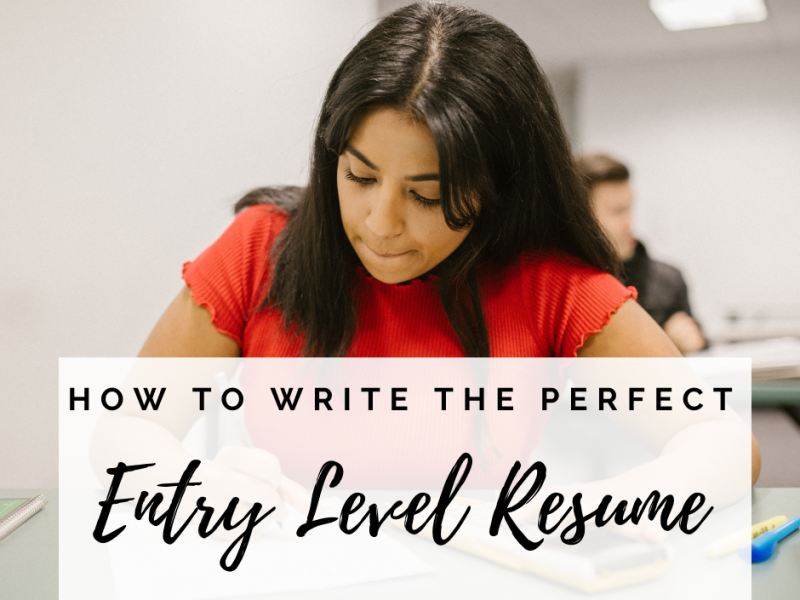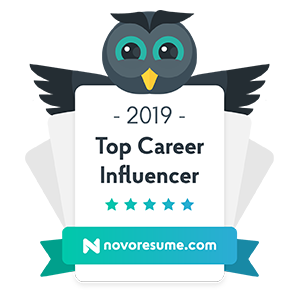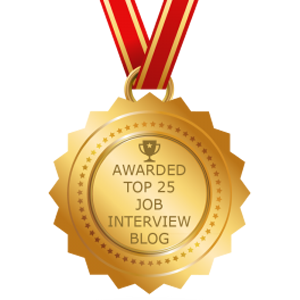Updated: February 2021
If you’re fresh out of high school or college and looking for an entry level job, it’s important to know that the job market is quite competitive. Companies are overwhelmed with entry level applicants who are convinced they are the right ones for a position. Since you will be competing with hundreds of other entry level candidates, it’s important that you stand out from the crowd with your resume. In this post we’ll share the latest trends in entry level resume writing, what HR is looking for in entry level resumes, and tips for standing out.
The Latest Hiring Trend: You Need to Know This
All applicants feel like they have to try to stand out from the crowd somehow, and I have seen some interesting methods: special paper, crazy and creative fonts, and colorful graphics. But what looks good to you might not look good to a recruiter. In fact, all that creative work you thought would make your resume stand out visually might actually block it from successfully getting through a company’s applicant tracking system (ATS). The ATS, like the human eye, favors simplicity. So the first rule of entry level resume writing is: KEEP IT SIMPLE so you can make it past the ATS!
What Really Happens After You Submit Your Resume
Knowledge is power when it comes to submitting your application. The more you know about how companies hire, the closer you will be able to get to landing a job with each application you send. The first thing you should know is that there are tons of people applying to any one position—even when a company plans to hire from within. There are also many steps to hiring – this is why you sometimes don’t hear back for weeks. Human Resources now uses ATS and other search engines to keep track of the onslaught and to electronically filter out hundreds—sometimes thousands—of applicants. Regardless the size of the company, HR will then read through multiple resumes in order to find the candidates they want to pass on to the hiring manager or department head. They may even conduct initial phone screens with some of the candidates before ever passing the resume on to the hiring manager as an extra checkpoint to weed out the wrong candidates.
The Types of Resumes That Do Best
Especially for an entry level position, the reviewer wants the resume to be calming and easy to read and will look for any reason to discard an applicant. There are that many people applying. If you chose a fancy script font, lack of readability might be a reason to discard your resume. Also, sometimes there are compatibility issues from machine to machine and system to system. It’s best to stay as plain as possible. Plain formatting and appropriate white space with one to two simple fonts, maximum. No fancy borders. No charts. No graphics. No symbols or extra characters. Just a plain, reader-friendly resume will do best. Avoid the top resume eyesores so you can avoid the trash. It’s okay if your resume isn’t dripping with bling—the point is to make the reading experience, easy on the reader’s eyes. The simpler the resume, the more likely the chances of landing an interview. You only have about 6 seconds to capture the reader’s attention, so make it count!
Why You Need to Adopt New Resume Best Practices
If all this seems different or contrary to what you’ve been told about resumes from other sources, know that professional resume writers generally agree on these tactics as they apply to the latest recruiting practices and the current job market. The purpose of your resume is not to make you feel warm and fuzzy. Don’t let what you think looks good on a resume stand in the way of what works for the hiring system. Instead, work with the hiring system.
The purpose of your resume is to get past the ATS and into HR’s hand so you can to land an interview. There you can expand on your resume and talk about how you will help the company and those fantastic and impressive school and part-time work achievements you’re so proud of.
Download Noelle’s Optimized Resume Templates Now!
What HR is Really Looking For in Entry-Level Resumes
The company needs help and is looking for someone to solve a problem. This is why they are hiring. Your accomplishments and overall content should speak to those needs. Start by explaining all the ways you have benefitted the departments you have been supporting. Or the idea you voiced that was considered and showed some good results. Or the initiative you were a party to during your internship. Companies love that.
How to Create the Perfect Format for Your Entry-Level Resume
Even a resume straight out of school can be impressive, and formatting is a HUGE part of creating a high-impact resume that pops. There are 3 types of resume formats you can choose from, throughout your career but we recommend the following chronological format which includes:
- A descriptive title that is specific to each position you apply to
- A tagline or subhead (optional) gives a general overview of your talent using keywords
- A summary of your experience and accomplishments that is supported by specifics from your background
- Core Competencies/Key Skills names specific skills you use in your field pulled from your experience
- Job descriptions in justified paragraphs followed by bulleted accomplishments.
This format provides plenty of opportunities to describe what you’ve been doing and how you’ve succeeded or contributed at each position or academically. You also add juicy, searchable key industry words in their appropriate context.
Ditch the Objective Section and Focus on How You Add Value
Companies are no longer interested in your personal objective or goals. Companies want to know what you can do for them. Omit the “Objectives” section from your resume. This is an outdated practice and it tells hiring managers you’re out of touch. Instead, opt for a high-impact “Summary” section. This section should be no more than a few lines and highlight your top content. Since you may not have a ton of career accomplishments at this stage in the game, communicate potential instead. Write about your high-level career interests, related work experience, and/or basic achievements.
Don’t Forget to Add the Finishing Touch
Make your statements short, specific, and focused on the job you want. Start each statement with a verb, if possible. The more descriptive action words you use to characterize your duties and accomplishments, the more you seem like an achiever. Don’t overlook transferable skills as you brainstorm your list of achievements. If you want to land that first job and then further advance, then you want to come off as an achiever, a go-getter who will make some positive contributions. You’ll also want to focus on finding the right keywords to communicate in a language desirable to hiring managers. Try these strong keywords for starters.
If you’re hoping to improve your entry level job search and land a job in record time, check out the Job Search Accelerator. In this budget-friendly job landing community you’ll have access to all of Noelle’s expert resources including a FREE resume review, optimized resume and cover letter templates, networking scripts and templates, LinkedIn optimization courses, interview answer scripts and more – everything you need to feel confident, navigate the job search successfully, and put your best foot forward as an applicant.


 50 Informational Interview Questions to Swear By
50 Informational Interview Questions to Swear By


